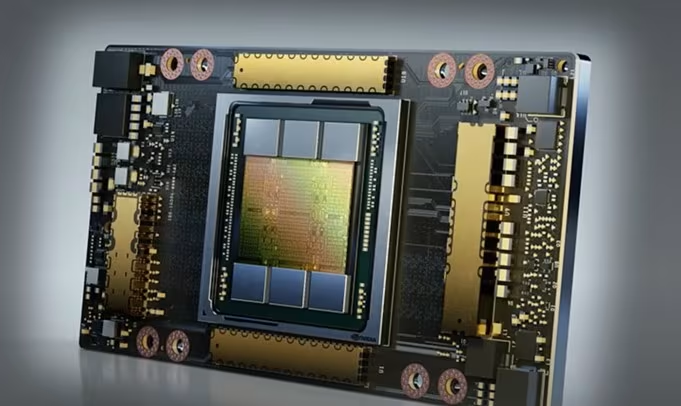In a major boost to the semiconductor industry — and a win for South Korea’s tech giant — Tesla CEO Elon Musk has announced a massive $16.5 billion contract with Samsung Electronics to manufacture advanced chips for Tesla’s self-driving and AI systems. The deal gives Samsung a critical role in the production of Tesla’s upcoming AI6 chips, helping the electronics maker regain ground in a high-stakes global race for chipmaking dominance.
A Big Win for Samsung’s Foundry Business
The deal couldn’t have come at a better time for Samsung. Its contract chipmaking division has been struggling to stay competitive in the rapidly evolving AI chip sector, losing market share to rivals like Taiwan’s TSMC and fellow South Korean chipmaker SK Hynix. News of the Tesla contract sent Samsung shares soaring — jumping 4% in midday trading and eventually hitting a 6% rise by early afternoon.
This partnership marks a crucial turning point for Samsung’s foundry business, which had been grappling with delays and customer retention issues. The new Tesla deal puts the company squarely back in the race to produce cutting-edge semiconductors — and potentially back on the radar of other big tech clients looking for alternative chip suppliers.

Where the Chips Will Be Made
According to Musk, two locations will handle production of Tesla’s chips:
- The AI5 chips, Tesla’s current-generation processors, will continue to be manufactured by TSMC in Taiwan and at their new facility in Arizona.
- The next-generation AI6 chips, which are expected to power Tesla’s more advanced self-driving and neural network systems, will be manufactured by Samsung at its upcoming fabrication plant in Taylor, Texas.
This Texas facility has faced delays, but Musk says its location near his home will allow him to personally inspect and oversee progress — a sign of just how important these chips are to Tesla’s future.
Why This Matters: Tesla’s AI Ambitions
For Tesla, this deal isn’t just about chips — it’s about owning the future of AI-powered mobility.
The automaker has long been developing its in-house silicon, specifically designed for autonomous driving and neural network processing. These chips are central to Tesla’s self-driving ambitions, and the leap from AI5 to AI6 represents a significant evolution in computing power and efficiency.
With Samsung on board, Tesla gains access to top-tier chip fabrication technology — and possibly more control over the supply chain at a time when semiconductor shortages and geopolitical tensions have upended global production.
A Strategic Move in a Geopolitical Chessboard
The announcement has caught the attention of the world. South Korea is currently in trade negotiations with the U.S., trying to secure favorable terms and avoid a 25% tariff that could come into effect as early as this week. A deal of this magnitude between two global powerhouses — Tesla and Samsung — could be a major bargaining chip for South Korea in those talks.
Industry analysts believe this partnership could strengthen diplomatic and economic ties between the two countries, especially in strategic sectors like chipmaking and shipbuilding, which are key components of South Korea’s export economy.
Catching Up in the AI Chip Race
Samsung has gained new momentum as AI chips are shaping the next dimension of technology — not just in cars, cloud computing, data centers and consumer electronics. Until now, Samsung had been lagging behind leaders like TSMC and SK Hynix, both of whom are aggressively pushing into high-performance AI chip production.
The Tesla deal signals a renewed confidence in Samsung’s foundry capabilities, potentially attracting more high-profile customers and giving the company a chance to regain its competitive edge.
Finally, I would say,
This $16.5 billion chip contract is more than just a business transaction — it’s a signal of the shifting balance of power in the global semiconductor landscape. For Tesla, it means stronger supply chain stability and technological control.
For Samsung, it’s a much-needed vote of confidence as it scrambles to catch up in the AI race. And for South Korea, it might just be the ace up its sleeve in crucial trade negotiations with the United States.
Stay updated with UState Pulse.